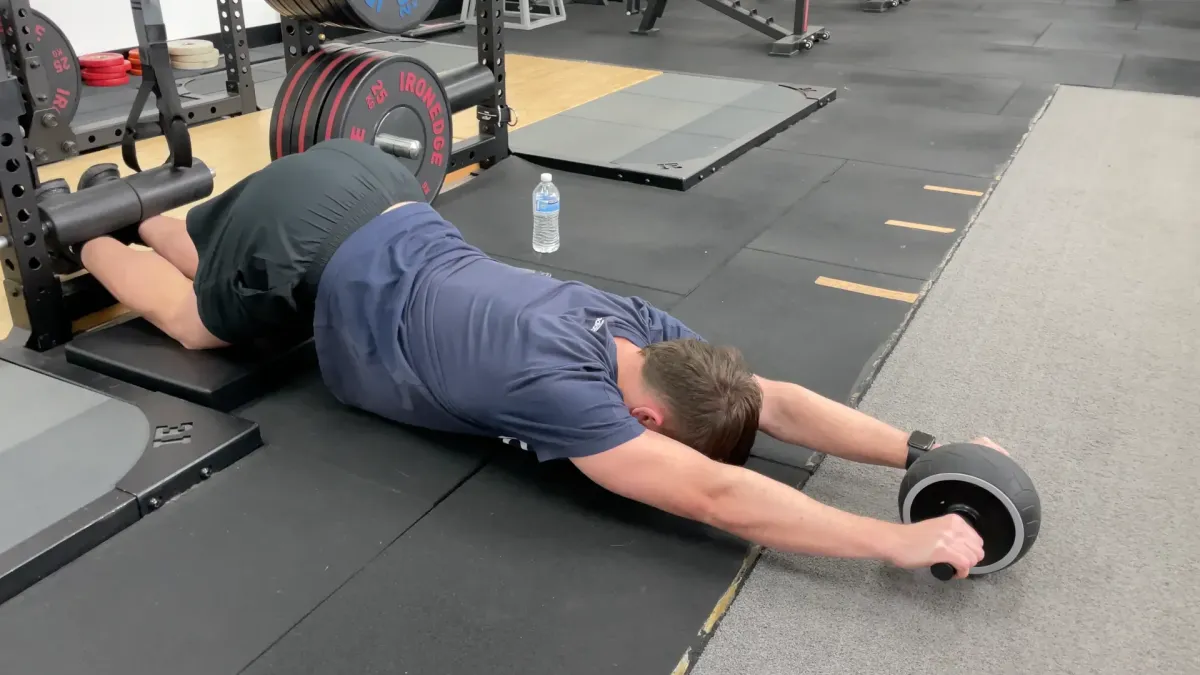Welcome To
Our Blog

Sport Specific vs Athlete Specific Training?
We to set our kids up for success and provide them with opportunities we never had.
As a strength & conditioning coach in the private sector, having conversations with parents is a daily part of my job. It typically starts with parents talking about their young athletes, highlighting their strengths, weaknesses and blind spots, and outlining their training goals. Understanding that every parent wants the best for their kids, it's our responsibility to reassure them that our facility is the ideal place for nurturing their budding athletic talents.
Parents often express a desire for "sport-specific training" regardless of their child's chosen sport. However, what exactly does "sport-specific training" entail? I aim to delve into the common perceptions of this term and suggest a more effective approach. I firmly believe that strength and conditioning coaches should adopt an "athlete-specific" philosophy, moving away from the prevalent sports-specific mindset.
Working with today's younger generation of athletes, who tend to focus exclusively on one sport instead of exploring multiple sports, we are witnessing a rising trend in sport-specific injuries. Parents are sometimes overly fixated on "off-season training," leading to an increase in off-season sports camps and practices. However, the off-season exists for a reason.
Consequently, we are witnessing a surge in injuries unique to specific sports, such as ACL tears in AFL, soccer and basketball players and rotator cuff issues in cricket, baseball and softball athletes. As physios & strength and conditioning coaches, it is our duty to educate athletes and parents about the importance of periodically setting aside their equipment and focusing on developing critical skills required for higher-level sports participation. This entails teaching proper movement patterns during physical activities and enhancing foundational strength and technique in the weight room. This process must be deliberate and gradual to ensure proper development.
This brings us back to the distinction between sport-specific and athlete-specific training and the need to understand what sports-specific training means from the perspectives of:
The Athlete
The Parent
The Sport Coach
The Strength Coach
For the purposes of this discussion, let's use the example of a high school or college-level basketball player.
What Does Sports-Specific Training Mean to The Athlete?
The younger generation is profoundly influenced by social media, for better or worse. Athletes often emulate what they see on platforms like Instagram, where coaches or trainers with the most views and likes showcase the "latest" drills. These drills may combine dribbling a basketball through agility hurdles, driving to the hoop, and incorporating strength exercises – all in one routine. However, this can lead to misconceptions. It's our responsibility to educate athletes about the significance of off-court/field training and proper techniques.
What Does Sports-Specific Mean to The Parent?
Parents typically want their children to perform the most advanced movements associated with their chosen sport. For instance, they may observe athletes like Dylan Shiel doing Harop Curls on a Nordbord and want their child to do the same. However, this approach can be problematic when applied to young, developing athletes. Many parents may not fully understand this, and it may be necessary to politely ask them to wait in the lobby during training sessions.
What Does Sports-Specific Mean to The Sports Coach?
Sports coaches vary in their approach, but some are primarily concerned with achieving quick results. They may push for high-intensity drills from the outset without considering mechanics, progressions, or regressions. However, it's essential to emphasise that training should have a purpose, as demonstrated by Joel Jamieson's research in Ultimate MMA Conditioning.
What Does Sports-Specific Mean to The Strength Coach?
When discussing the distinction between sports-specific and athlete-specific, the term "sport-specific" may be misleading. Instead, it should be "athlete-specific." In my professional capacity as a Sports Performance Consultant or Physiotherapist, I don't specify a particular sport within my title, and I believe it should stay that way.
My role revolves around enhancing athletes' running and jumping mechanics and developing strength and power in the weight room without relying on sport-specific equipment. If athletes become faster, stronger, and more efficient in their respective sports, they will undoubtedly excel. Our objective is to prepare athletes for their sport, not replicate it.
To maintain and engage athletes and parents while remaining true to our coaching title, we can tailor training drills to relate to distances and directions on a field. For example, a baseball player might perform linear speed drills over a distance of 30 metres, equivalent to the bases on a baseball diamond. This familiarity can boost the athlete's confidence in executing the drill.
In contrast, a football player, particularly one from the back line, would benefit from short bursts of acceleration and technique from a side standing position, aligning with the specific demands of their position.
While each sport may emphasise different skills (e.g., vertical jump in basketball), these skills can enhance overall athleticism. Increased vertical jump, for instance, can improve an athlete's ability to rebound in basketball, win headers in soccer, or catch passes in football.
Hence, it's crucial for strength and conditioning coaches to adhere to their job title. While some coaches specialise in skills training, a solid foundation of fundamental movement patterns and strength development is essential before progressing to advanced movements. As strength and conditioning coaches, our mission is to make athletes more athletic, which, in turn, enhances their performance in their chosen sports.
01

Athlete Performance Program
High Performance Training Throughout Your Entire Season.
02

Sports Physio
Sport Specific Injury Management & Prevention
03

Concussion Clinic
Keeping Your Brain Safe With Up To Revolutionary Concussion Care
Website & Marketing Powered By Gymini


